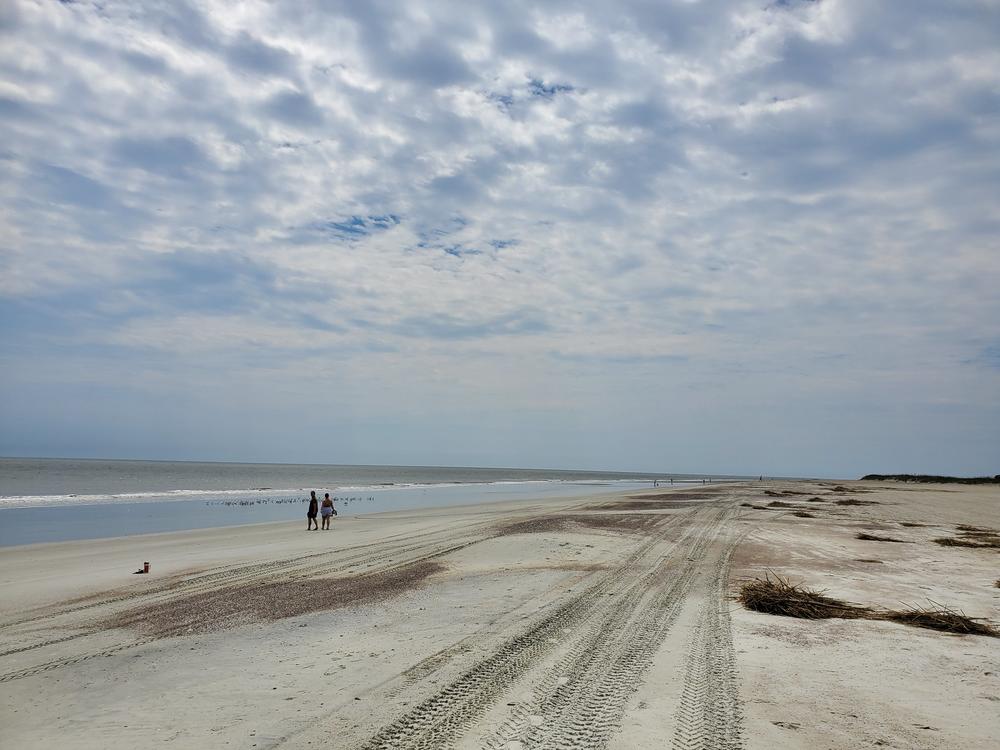Section Branding
Header Content
Coronavirus Dampens Georgia Port, Tourism Activity
Primary Content
New numbers out Thursday showed that nearly one in 10 Georgians has claimed unemployment benefits in the last month as the coronavirus spreads and shuts down much of the economy. The state's seaports are a major economic driver and support some nine percent of jobs in Georgia, while tourism is a key industry on the coast.
GPB Reporter Emily Jones spoke with All Things Considered Host Rickey Bevington about the impact on the coastal economy.GPB's Emily Jones and Rickey Bevington discuss coronavirus at the ports and other coastal stories.
Georgia's ports are feeling the impact of the coronavirus, with a more than 18% drop in activity in March.
Officials initially said they expected port activity to rebound in April as China's economy picked back up, but Executive Director Griff Lynch said Thursday he now anticipates slower port activity in April and May. The impact of the coronavirus could extend beyond that as well, Lynch said.
The slowdown at the ports has not led to layoffs by the Georgia Ports Authority, though workers are getting less overtime than they normally would. But Lynch said other, related industries like trucking and warehousing may be seeing job losses.
Another major piece of the coastal economy, tourism, is taking a major hit from the spread of the virus. Statewide accomodations and food service saw the biggest jump in initial unemployment claims, according to the Department of Labor.
The Golden Isles Convention and Visitors Bureau said Wednesday that it projects an economic loss of $163 million through the end of May. Hotel occupancy rates both there and in the Savannah area are in the single digits. Occupancy is expected to be below 8% on the busiest night this weekend in Savannah, according to the Tourism Leadership Council.
"It's like a ghost town compared to what it would normally feel like this time of year," said Amy Gaster of Tybee Vacation Rentals and the Tybee Tourism Council. "I mean, it's not that many people here. It's mostly locals here."
Gov. Brian Kemp ordered beaches reopened earlier this month after local governments closed them. Local officials have decried that move, fearing it would attract more people and spread the virus in vulnerable, aging coastal communities.
But the city of Tybee Island has kept most beach crossovers and parking lots closed, and tourists have not returned in large numbers.
There could be a silver lining for Georgia beaches once restrictions are lifted, however, Gaster said. Tourism industry surveys have shown people may be more likely to stay local than to travel internationally or take cruises after the pandemic.
"Instead of going on more elaborate vacations, it's hey, you know, we're a family from Atlanta. We're going to load up in the car and we're going to drive four hours and rent a place at the beach and just enjoy family time and a simpler way of vacationing," Gaster said.



